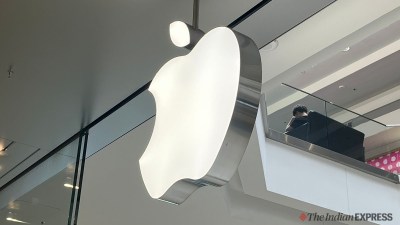Culinary convergence
The way to fund raisers' hearts is through their stomachs, or at least through praising the fare on which they were weaned. And no one see...

The way to fund raisers8217; hearts is through their stomachs, or at least through praising the fare on which they were weaned. And no one seems to know this old trick better than that ultimate charmer, US President Bill Jefferson Clinton. He took the jalebi 8212; syrup and all 8212; by praising Indian cuisine to the skies at a fund-raising exercise hosted by a powerful bunch of Silicon Valley Indian-Americans the other day. While tucking into his tandoori mixed grill, Clinton shared his memories of having fought the English chill as a college student in that country by downing Indian fare four times a week and made it generally known that while dining out in Washington, the Bombay Club8217; was his preferred destination. Thus did he disarm his hosts completely. Given these special effects, it is not entirely surprising that the two-day fund-raising tour of California proved a profitable exercise for both the guest and his hosts.
While Clinton8217;s exertions yielded close to one million dollars for the Democratic National Committee and the Al Gore election campaign, the hosts could rejoice in the fact that the president of the United States actually believes that they must be part of the mainstream political process. 8220;It is imperative for the next administration to do more to get Indian-Americans involved, not just in the political process but in the governmental process in appointed position at high levels,8221; Clinton said. As if this was not enough, he dwelt at some length on the phenomenal success that the Indian-American8217;s 8220;industry, enterprise and imagination8221; had wrought. If this happy outcome does not demonstrate the powerful synergy of culinary flavours and political interests, what does?
Food has always been a great ambassador for this country. There are few cuisines in the world today that can rival India8217;s, in terms of therange of its ingredients or the variegated nature of its flavours, having emerged as it has from a diverse history and geography. In Britain, the curries and balti cuisine of this part of the world has long overtaken more traditional fare like the once ubiquitous fish and chips or even the Chinese takeaways that were, just a few years ago, every Briton8217;s idea of an alternative meal. This allure of spicy dishes dates back to the days when the zamorins of Calicut could bring distant Europe to its heels, with just a whiff of the pepper and cloves that grew so profusely in the hot, wet climes of the Malabar coast. Clinton himself, as a latter day traveller, had surrendered to the delights of biryanis and naans, raan gosth and murg malai kababs when he had come a-visiting in March. And when the time came for him to play host during the formal White House banquet for Prime Minister Vajpayee last week, there was a distinct, if passing, nod to Indian cuisine 8212; as the Darjeeling tea in the smoked poussin orthe mango in the fruit dessert signified. There is a message out there for those who will perceive it: For political convergence start with culinary convergence.
- 01
- 02
- 03
- 04
- 05































